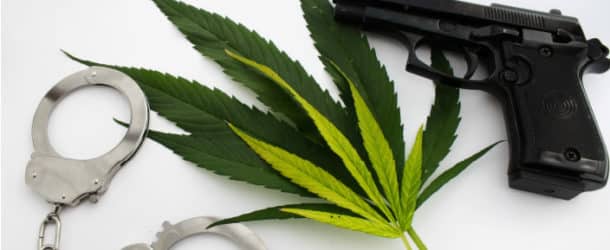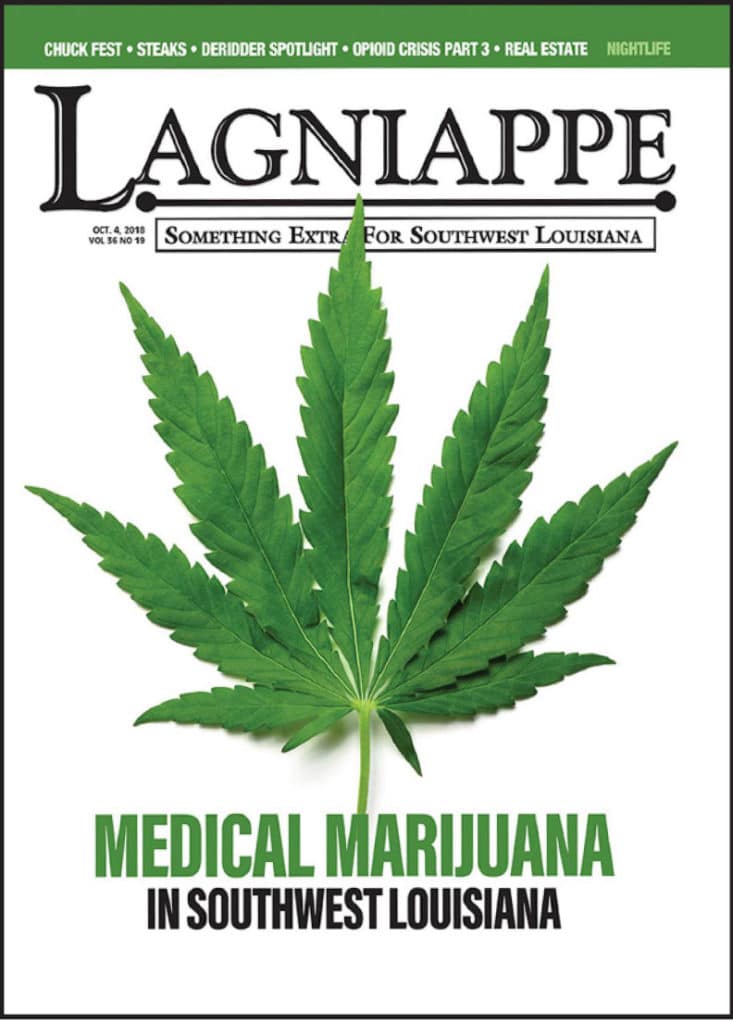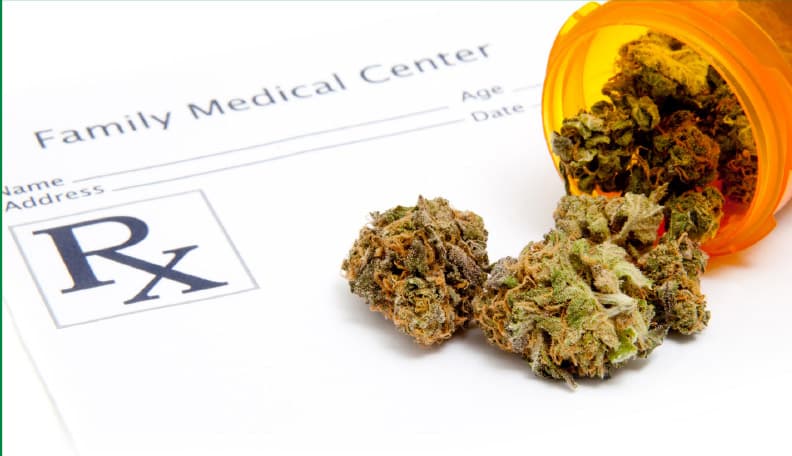Louisiana’s Medical Marijuana Users May Have To Decide Between The Two
By Karla Wall
The recent emergence in Louisiana of medical marijuana cultivation, and of pharmacies licensed to dispense it, have raised a lot of questions. One issue that hasn’t been discussed much, however, is the inability of those who use medical marijuana to purchase firearms.
Legally, it’s a clear-cut issue. As it stands now, anyone who uses medical marijuana is prohibited from purchasing a firearm, even though medical marijuana is legal in the state, is recommended by a physician and is purchased through one of the state’s nine legal medical marijuana pharmacies. It’s still a schedule 1 controlled substance under federal law, and thus illegal on the federal level.
Federal Law
Federal legislation passed in 1968 — the Gun Control Act of 1968 — prohibits the purchase of firearms and ammunition by an “unlawful user and/or addict of any controlled substance.”
Though Louisiana has legalized medical marijuana, it remains a federally controlled substance, and gun purchase falls under federal law, which means that those who hold medical marijuana cards, which are legal under state law, still cannot purchase firearms.
They can’t even possess them.
In 2011, as more and more states were beginning to legalize medical marijuana, the Bureau of Alcohol, Tobacco and Firearms issued a statement that made it very clear: Federal law “bans unlawful users of or anyone addicted to any controlled substance from shipping, transporting, receiving or possessing firearms or ammunition regardless of whether (a) state has passed legislation authorizing medical marijuana use for medicinal purposes.”
In September of 2016, in a case involving a Nevada woman who used medical marijuana and attempted to purchase a firearm, the Ninth Circuit Court of Appeals ruled that federal law prohibiting medical marijuana users from buying firearms does not infringe upon their second-amendment rights. The court’s reasoning was that marijuana has been linked to “irrational or unpredictable behavior.”
The court pointed to the causal relationship between drug use — including “marijuana, hallucinogens, sedatives and heroin” — and involvement in violent crime.
The Fourth Circuit Court not only agreed but argued that the government need not prove a relationship between drug use and violence to prevent drug users from purchasing or possessing firearms.
Tough Choices
So what’s an MMJ user to do?
There really are only three choices: Do without the medical marijuana, get rid of your guns and give up the idea of purchasing one for the foreseeable future, or lie on the ATF form when you do purchase a weapon.
The requirement that gun purchasers fill out a federal questionnaire before being allowed to purchase a firearm was put in place in the 1968 legislation. And that form has always included a question as to whether or not the potential buyer consumes marijuana.
The form states:
“Are you an unlawful user of, or addicted to, marijuana or any depressant, stimulant, narcotic drug, or any other controlled substance? Warning: The use or possession of marijuana remains unlawful under Federal law regardless of whether it has been legalized or decriminalized for medicinal or recreational purposes in the state where you reside.”
Now, it may seem like a no-brainer — just lie and go about your merry way with your weapon. But that’s perjury on a federal form, which is a felony.
How easy would it be to get caught in that lie? In Louisiana, as of now, medical marijuana users will not be required to register and receive a card. However, according to literature issued by the Sylvester Law Firm in Lafayette, each recommending physician is required to “document the date, type, quantity, dosage, route and frequency of each written request or recommendation for marijuana which the physician has made for a patient.”
Each recommendation is entered into the state’s Prescription Monitoring Program, and it must be verified by the pharmacist before the medical marijuana can be dispensed.
So, as with all prescriptions for such drugs, there is a careful and detailed record of each prescription, or in the case of medical marijuana, recommendation, by a physician. So while there is no database or registry of MMJ users in Louisiana, there is a record of recommendations, with names and information of all who receive recommendations for it.
Hypocrisy?
Medical marijuana users who are also gun enthusiasts will no doubt argue, not without some justification, that the gun purchase and ownership ban is hypocritical and unfair.
Does marijuana lead to violent behavior? Plenty of evidence says no.
Also, the ban doesn’t apply to frequent users of alcohol, though it can rightfully be said that alcohol plays a role in more deaths, violence and accidents than marijuana. The fact that an alcoholic can walk in and buy a gun with no problem, while a person who’s taking medical marijuana under a doctor’s care is considered too dangerous to own a weapon, doesn’t sit well with most advocates of MMJ.
Along the same lines, a person addicted to opioids can also buy and own weapons. And the main argument that those who advocate the use of medical marijuana put forth is that medical marijuana is a safer, less addictive alternative to opioids.
Gray Area
It’s a definite gray area, one which will have to be addressed at the federal level. With more states legalizing medical marijuana, and the number of patients using it continues to grow, it’s a problem that will need a solution.


















Comments are closed.